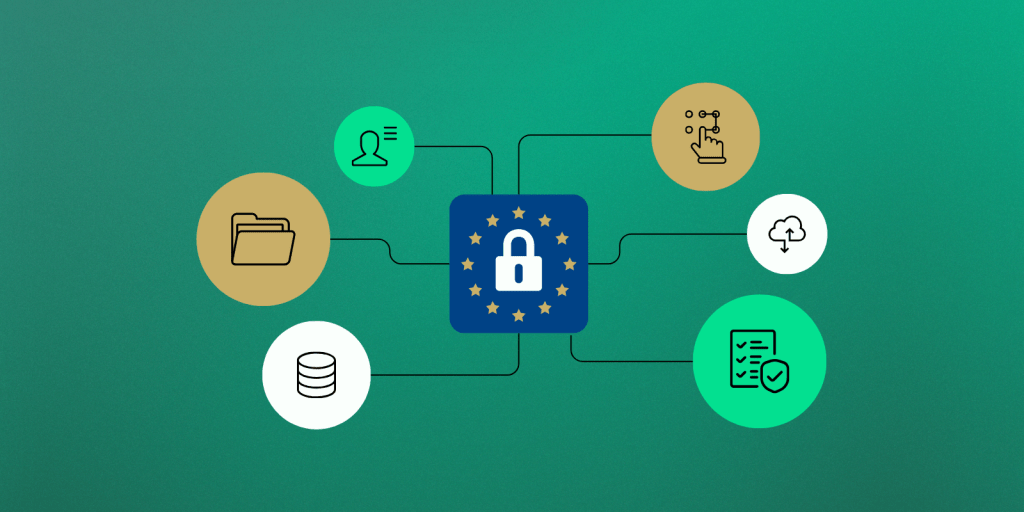Protecting personal data is crucial to maintaining the integrity and trustworthiness of any business. Securing this data becomes essential as companies manage increasing amounts of user information. Robust data protection measures fulfill legal obligations, such as those mandated by the General Data Protection Regulation (GDPR), and enhance a company’s reputation by showing a solid commitment to privacy and security. This is essential for fostering trust among customers, assuring them that their personal information is handled with the utmost care and respect.
Understanding GDPR Responsibilities
The General Data Protection Regulation (GDPR) mandates stringent norms for the privacy and protection of personal data within the European Union and the European Economic Area. Enterprises must collect personal data legally, adhering to rigorous conditions. Crucial mandates include securing explicit consent from individuals, offering transparent disclosures about how data is used, and enacting strong safeguards for data integrity and confidentiality.

Critical aspects of GDPR and its importance
1. Enhanced Individual Rights
– Consent: GDPR underscores the necessity for explicit and informed consent before data processing.
– Access and Portability: Grants users rights to access their data and to obtain it in a portable, usable format.
2. Privacy by Design
– Incorporates data protection strategies directly into the design of business processes and services.
3. Steep Penalties
Non-compliance can lead to hefty fines—up to 4% of annual global turnover or €20 million (whichever is higher), a significant increase from previous legislation.
4. Global Impact
– Affects entities within and outside the EU, particularly those engaging with EU residents.
5. Building Trust and Credibility
– Compliance fosters trust and credibility, which is vital in the contemporary, data-centric commercial landscape.
6. Data Security
– GDPR bolsters organizational defences against data breaches and other security threats by enforcing robust data protection measures.
WordPress as a GDPR-Compliant Platform: Key Considerations
For enterprises leveraging WordPress, achieving GDPR compliance is not just a legal requirement—it’s an opportunity to establish a base of trust and transparency with users. This requires a sophisticated approach to data privacy that integrates seamlessly with WordPress’ technological capabilities, empowering enterprises to take control of their data processes.
Data Mapping and Audit: This is crucial to achieving GDPR compliance. It involves conducting a comprehensive audit of your WordPress site to identify all data collection points, understand how data flows through your systems, and assess the associated risks. This information will help shape an effective compliance strategy.
Consent Management: Use WordPress plugins like Cookie Notice or Complianz to streamline consent management and give users governance over their data.
Data Protection Initiatives: Enhance your WordPress site’s security with SSL certificates. These certificates encrypt the data transmitted between your site and its users, protecting sensitive information. Regular data backups and secure access protocols are also essential. Keeping WordPress core, themes, and plugins updated is crucial for mitigating vulnerabilities.
Privacy Policy and User Rights: Revise your privacy policy to align with GDPR stipulations. Be transparent about your data handling practices and respect users’ rights to modify, delete, or transfer their data.
Vendor Management: Verify that all third-party services linked to your WordPress site comply with GDPR. This includes web hosts and other partners who manage data.
Advanced Strategies for Enterprise-Level Compliance
By leveraging WordPress’s flexibility and robust ecosystem, alongside strategic compliance measures, enterprises can create a secure and compliant online presence. As regulations evolve, staying informed and agile will be vital in navigating the complexities of data protection in the digital age.
Custom Development
For intricate enterprise sites, consider developing custom themes and plugins tailored to your specific compliance requirements. This can enhance control over data processes, ensure your site is designed with privacy in mind, and help you meet the unique challenges of GDPR compliance.
Automated Compliance Tools
Invest in sophisticated solutions that automate GDPR compliance monitoring and reporting for your WordPress infrastructure with real-time alerts and impact assessments.
Training and Awareness
Regular educational sessions can keep your team informed and vigilant about GDPR best practices and their compliance roles. This can help ensure that everyone understands their responsibilities, knows how to handle data compliantly, and is aware of the potential risks and consequences of non-compliance.
Ongoing Monitoring and Evaluation
Implement continuous monitoring systems to maintain compliance as your business grows and adapts to new regulatory landscapes.
Choosing the Right WordPress Partner for GDPR Compliance
Selecting an expert WordPress development partner like Trew Knowledge is vital for GDPR compliance because we bring specialized knowledge and experience in data protection standards. Trew Knowledge can help integrate GDPR-specific features seamlessly, offer custom solutions for unique compliance needs, and provide ongoing support to update your site with the latest regulations. Contact us today.

